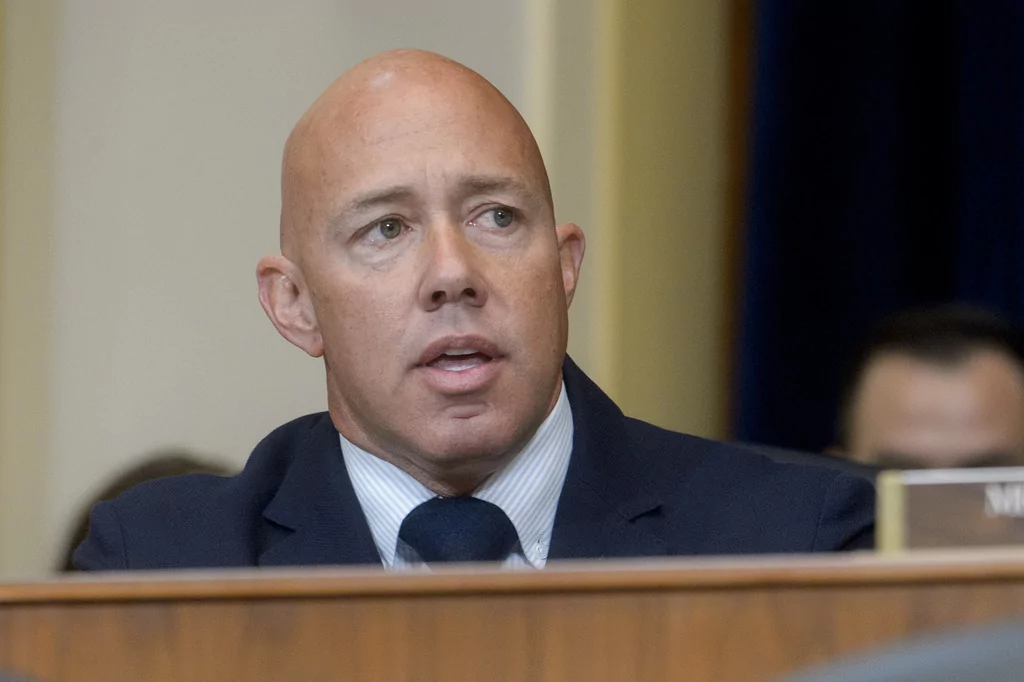

A $1 billion arms sale package to Israel was paused by a member of the House Foreign Affairs Committee on Tuesday as Israeli Prime Minister Benjamin Netanyahu became the first foreign leader to visit President Donald Trump since he returned to the White House.
House Foreign Affairs Committee Chairman Brian Mast (R-FL) told the Washington Examiner that ranking member Gregory Meeks (D-NY) paused the sale.
“It wasn’t ‘Congress’; it was Meeks,” Mast said when asked why Congress paused the sale.
Any of the four top lawmakers on the House Foreign Affairs and Senate Foreign Relations Committees have the power individually to block arms sales when over a certain dollar amount.
“Which, to me, is very nonsensical given you’re talking about precision-guided weapons, which would be what you would think you would want at a basic level,” Mast said. “At another very basic level, Israel is our greatest ally in the region, and so to not sign off on an arms sale to our great ally is the equivalent of sanctioning your ally in the middle of war, which is just stupid.”
A spokesperson for the Foreign Affairs Committee minority told the Washington Examiner that Democrats “continue engagement with the Administration on a number of questions and concerns — of which we as a general rule do not provide substantive details — but can confirm engagement continues due to the complex nature of the cases and relevant concerns.”
The Wall Street Journal first reported that Democratic lawmakers placed a hold on the sale to review the deal that includes 4,700 1,000-pound bombs, worth more than $700 million, as well as armored bulldozers built by Caterpillar, which are worth more than $300 million.
Trump can override Congress’s hold on the arms sale and set precedent to do so in his last administration. In 2019, he pushed through over $8 billion in arms to Saudi Arabia, the United Arab Emirates, and Jordan without congressional approval after the GOP-controlled Senate initially blocked the sale.
While arms deals to Israel have historically been bipartisan, the war between Israel and Hamas fractured the Democratic Party as more progressive lawmakers vocally criticized Netanyahu’s wartime actions and called for more humanitarian assistance to Gaza. Republicans overwhelmingly backed Israel since the Hamas attacks in October 2023, with the divide between pro-Palestinian and pro-Israel within the Democratic Party factoring into noncommittal movements during the 2024 primaries and general elections where former Vice President Kamala Harris suffered a sweeping defeat to Trump.
The decision to pause the arms sale comes as Democrats are blasting decisions from the Trump administration just a little more than two weeks into his second presidency. A string of executive orders targeting immigration and diversity, equity, and inclusion, as well as an initial aid freeze, the overhaul of the U.S. Agency for International Development, and the threat of tariffs, are among the actions condemned by Democrats.
With a GOP trifecta, there is very little room for Democrats to push back legislatively. However, on the Senate side, Sens. Brian Schatz (D-HI) and Chris Van Hollen (D-MD) vowed to place a blanket hold on the rest of Trump’s nominees to the State Department until the president rescinds his plan to shut down USAID.
During Netanyahu’s visit with Trump on Tuesday, the president said the United States would “take over the Gaza Strip and do a job with it too. We’ll own it.” Before the meeting, the White House referred to Gaza as a “demolition site,” predicting it would take more than a decade to reconstruct the enclave.
Trump did not provide details as to how the U.S. would come to own the Hamas-controlled area.
CLICK HERE TO READ MORE FROM THE WASHINGTON EXAMINER
This comes after Trump suggested last week that the neighboring countries of Egypt and Jordan should offer shelter to the refugees throughout the rebuilding process. The leaders from the two foreign countries, as well as the United Arab Emirates, Saudi Arabia, Qatar, and the Arab League, condemned the proposal as forced “evictions.”
Netanyahu himself gave his blessing to Trump’s announcement, claiming that it would ensure “that Gaza never poses a threat to Israel.” The Israeli prime minister also took a jab at former President Joe Biden earlier in the visit, stating Trump deserves credit for brokering the January ceasefire deal — a point of contention that has drawn partisan opposition over whether Biden or Trump deserves the accolade.







